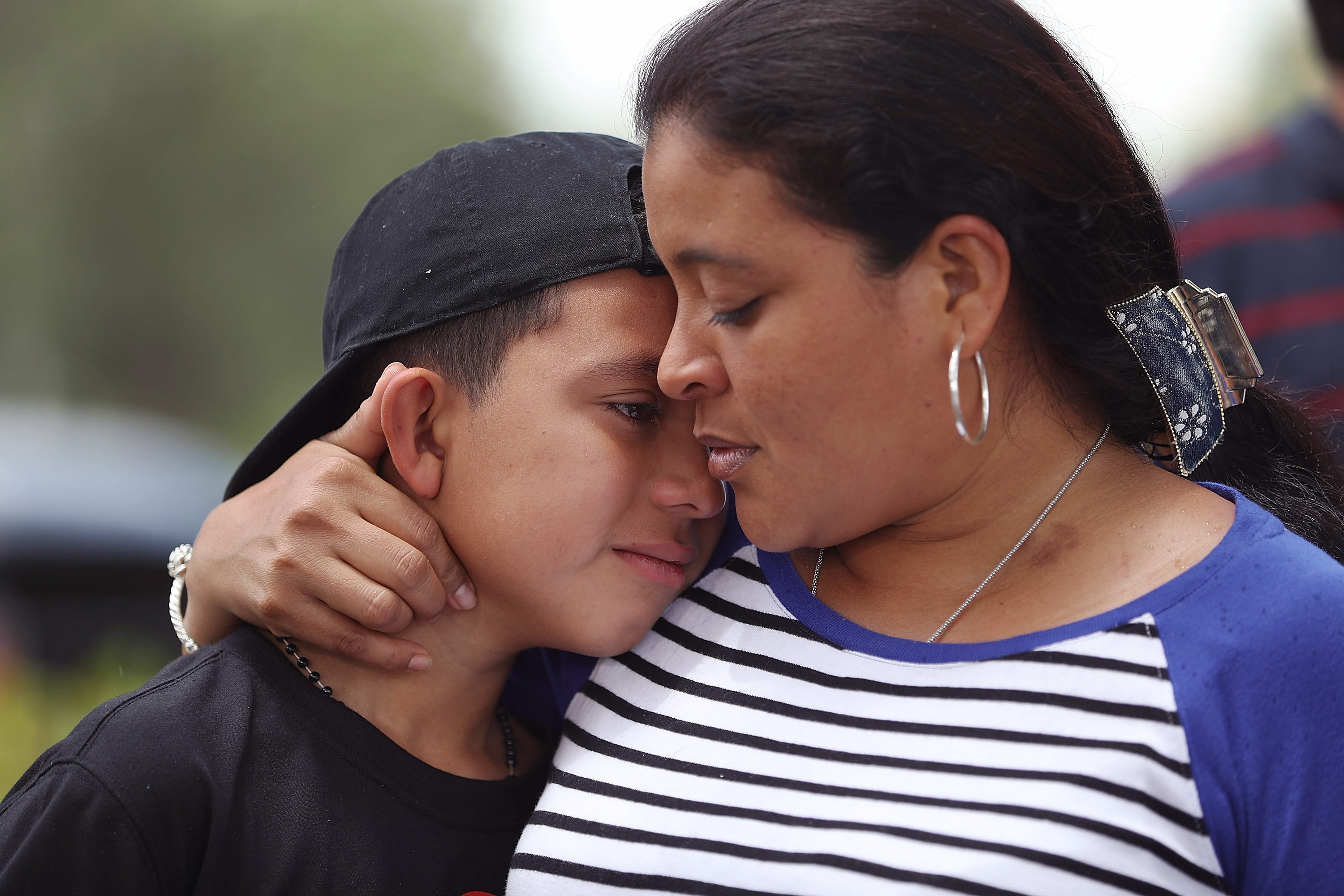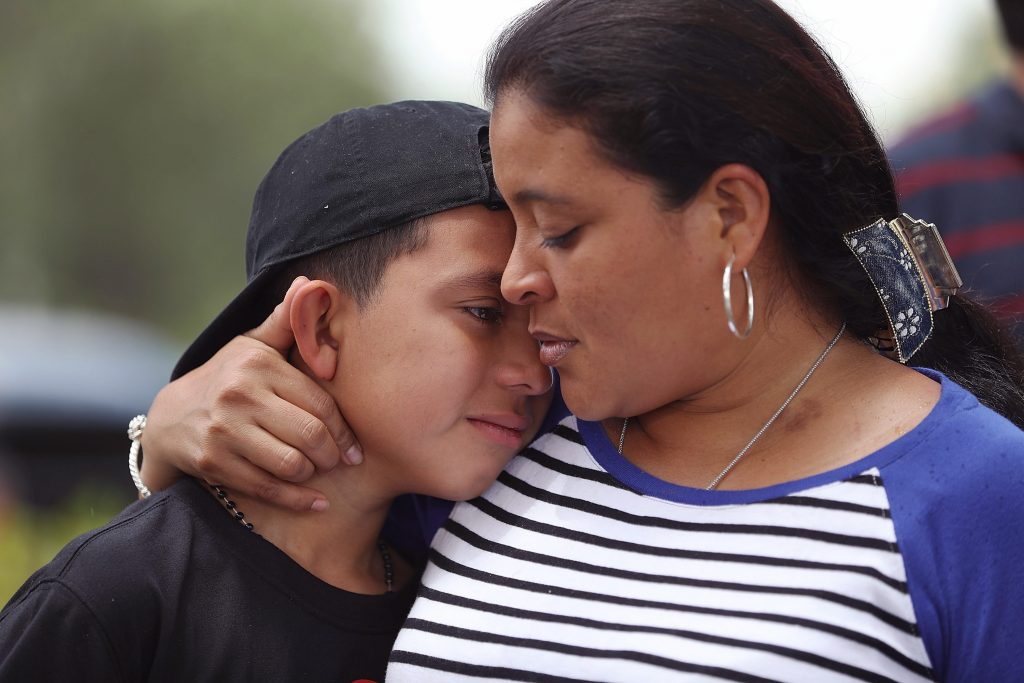When news broke on Monday that the Trump Administration had canceled Temporary Protected Status (TPS) for yet another country, Salvadorans took to Twitter to express their fears – both for themselves and their family members. Messages poured in from teenagers who didn’t know how they’d support themselves and their siblings without their parents, as well as from adults who worried about everything from bills to returning to a country that’s in a state of turmoil. But the end of TPS – a program Congress started in 1990 to shield people who fled natural disasters and war – didn’t just make this community sad and afraid, it also made them angry. Soon, many began pointing out that the US was sending Salvadorans back to a country that had suffered because of US interventionism.
Salvadorans are the biggest beneficiaries of the program, making up more than 200,000 of about 320,000 recipients. On average, they have called the United States home for 21 years. In that time, they’ve built businesses, bought homes, started families, and contributed to the US. And now, the current administration will end protection for them in September 2019, leaving their fates – as well as those of Nicaraguans, Haitians, and Sudanese recipients who lost their protection previously – up in the air. In a statement, The Department of Homeland Security stated that El Salvador had bounced back from a 2001 earthquake. But this comment shrouds the reality Salvadorans face on a daily basis.
Even if the country no longer felt the effects of the 2001 earthquake (experts say that people who lost their homes still don’t have appropriate housing), it is experiencing gang-related violence that the United States shares responsibility for. In the 80s, the US – fearful that Guatemala, Honduras, and El Salvador would fall under communist rule – intervened and provided military aid and training to the authoritarian governments, which pushed Central American refugees to move to the United States as civil wars disrupted their everyday lives.
Meanwhile, in the United States, the young men who had escaped strife in Central America found themselves needing to start their own gangs to protect themselves. Later when they were deported, the gangs – Mara Salvatrucha and Barrio 18 – spread throughout the Northern Triangle. Today, they are one of the primary reasons people have fled the isthmus.
With the cancelation of Salvadorans’ TPS protection, people reminded the administration why the US should continue providing this population with protection. Check out a few comments below:




